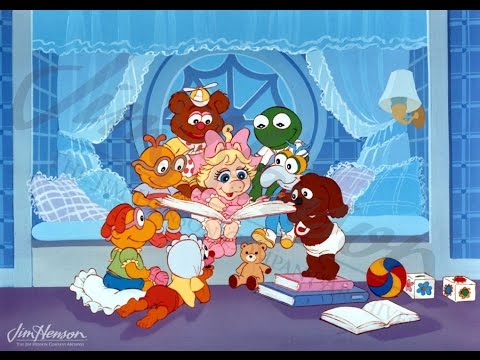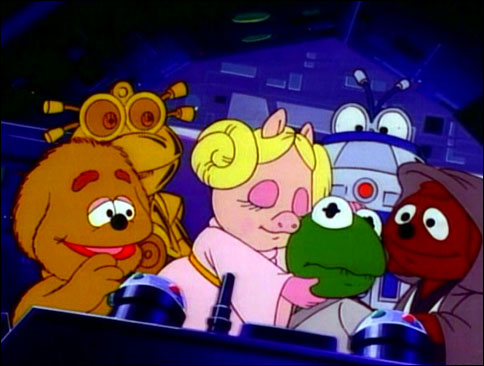The Muppet Babies & The Power of Imagination
“When you’re world seems kind of strange, and you wish that you weren’t there, just close your eyes and make-believe and you can be anywhere.”– Muppet Babies Theme Song The Muppets are a true phenomenon (pun intended). They’ve been around since the 1950s, and became the icons that they are today through the launch of The Muppet Show in 1976.
From feature films to books to toys, The Muppets are a staple in our culture. As a kid, I had Muppet stuffed animals, books, games. I’ve also seen every Muppet movie, including the most recent ones, so I’m obviously still a bit obsessed with them.
The Muppet Babies launched in 1984, shortly after The Muppet Show ended. The show was syndicated for a number of years, and that’s how I was lucky enough to come across it.

The premise – The Muppets all grew up together (unbeknownst to us), in an adorable nursery that suited all of their interests.
Nanny and The Nursery
There was a piano for Rowlf, a stage for Fozzie, and a drum set for Animal. They were watched over by a woman known only as “Nanny.” Nanny never showed her face – we only ever heard her voice and saw her notable striped socks.
We got to see baby Kermit, Gonzo, Piggy, Skeeter and Scooter, Rowlf, Fozzie, Animal, and on occasion Bunsen and Beaker (my favorites).
The show centered on their wild imaginations, and always included a song. From Indiana Jones to Star Wars to The Wizard of Oz, the Muppets imagined themselves as whoever and whatever they liked.

The show included random clips from black and white films, and delved into the depths of each of the characters. Gonzo sang a sad, artistic song about being a semi-weirdo, which made kids the world over feel good about being different.
Fozzie tried to give up comedy – and failed, and of course Piggy loved her Kermie.
Pop Culture
Through the power of imagination The Muppet Babies were able to change their reality, turn themselves into classic film characters, and think of solutions and outcomes to the problems they faced in that nursery.
I loved the show for its numerous references to pop culture – including art, film, television and music; the jokes that went beyond my understanding at that age and the fact that characters are already loved were being shown as children
I realize that at the time of writing this, there’s been a reboot. We will not discuss this blasphemy at this time. The children’s show was meant for a different generation, and in my opinion was a bit smarter than much of kid’s programming today, but I realize I may be a bit biased.
If I could watch this show again today, I would. The biggest takeaway – the world is what you make it.
